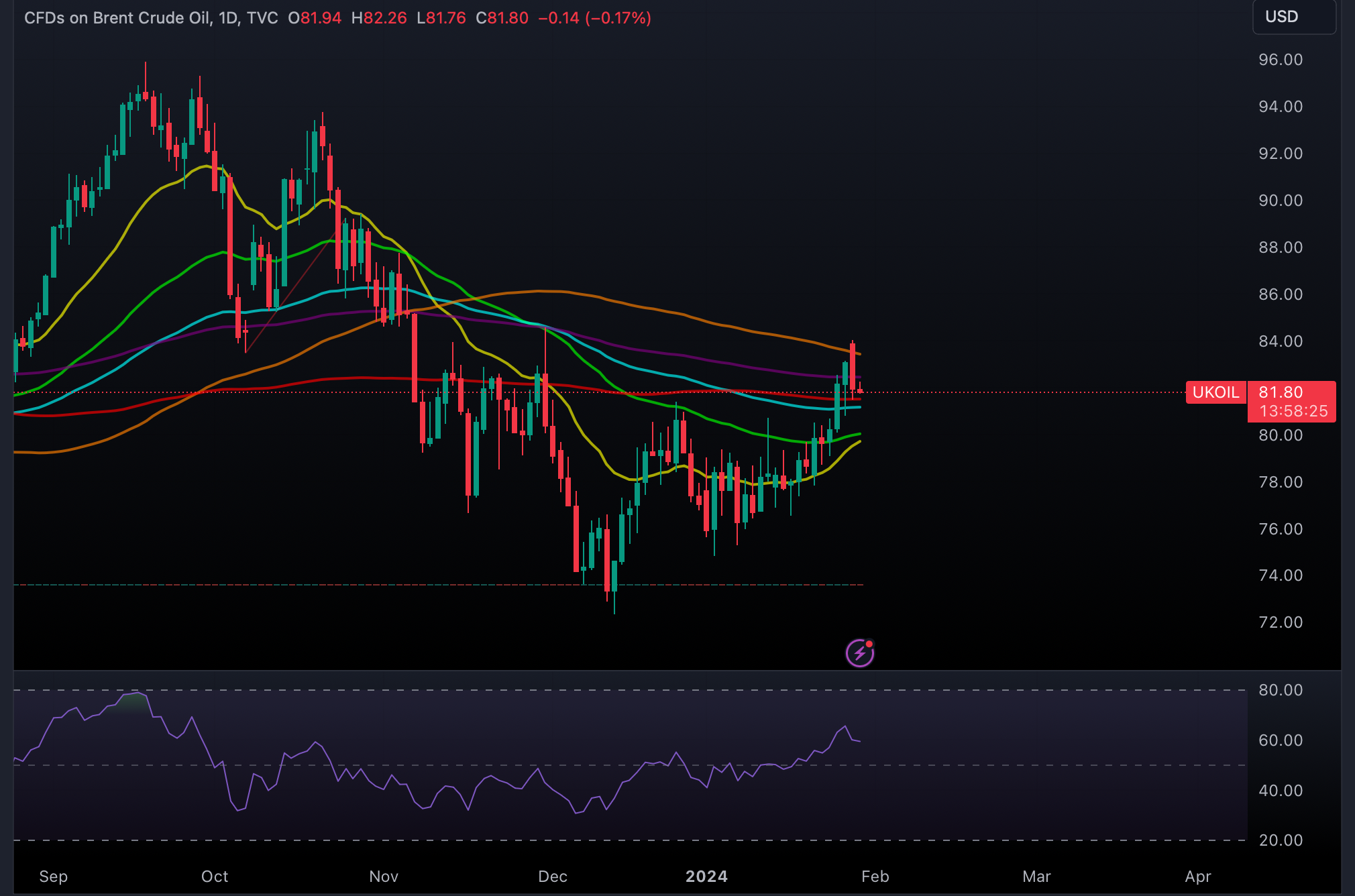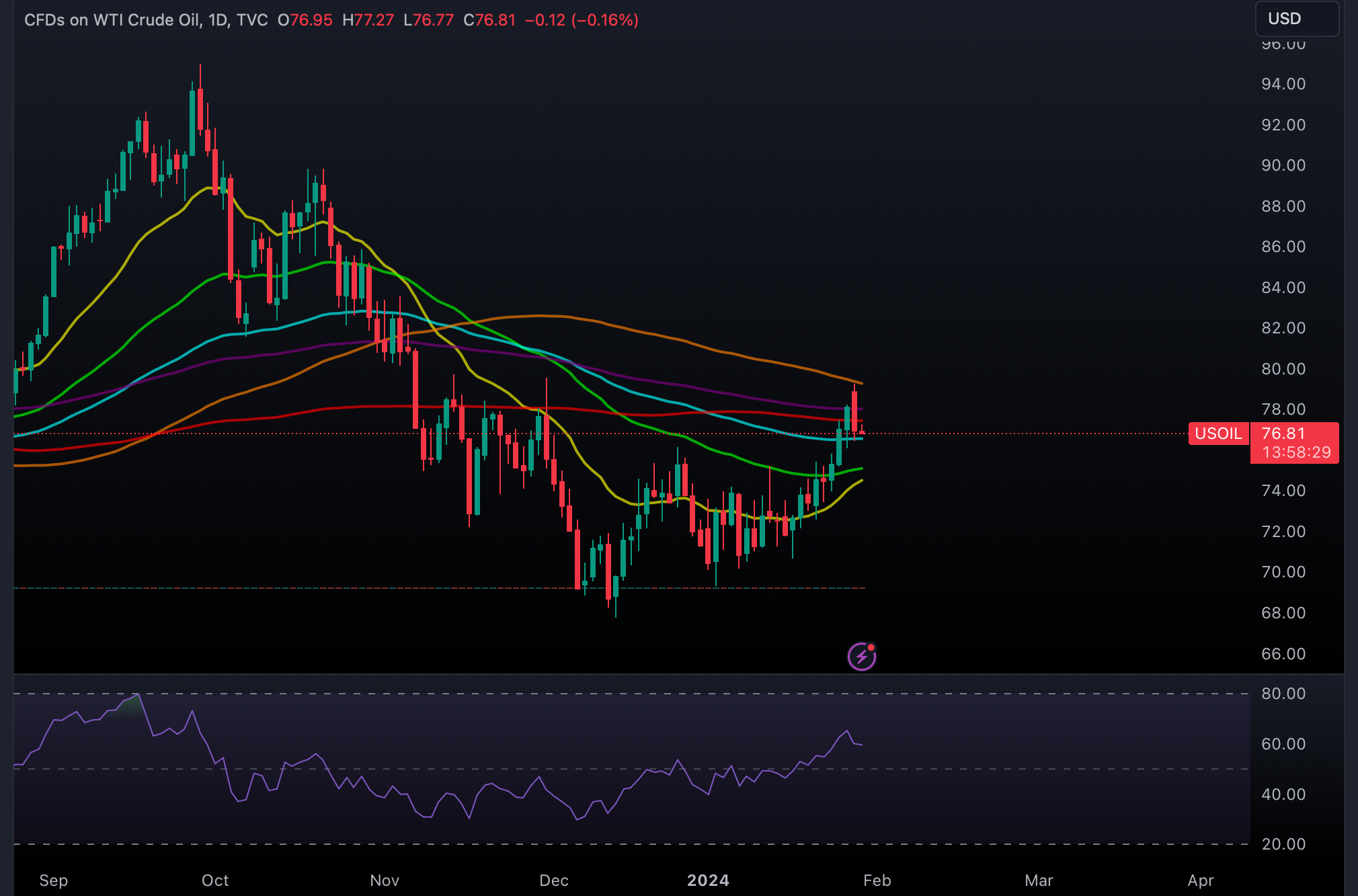Global oil markets are currently experiencing a nuanced shift, primarily influenced by economic and geopolitical forces. This article delves into the latest fluctuations in oil prices, driven by China’s real estate woes and rising tensions in significant oil-producing regions.
The start of the week saw a sharp increase in oil prices across the board due to supply disruptions brought on by a drone attack on American forces stationed in Jordan. In a similar vein, Gold Prices Rise Despite Geopolitical Unrest.
OIL PRICES AND CHINA’S ECONOMIC CONCERNS
The recent trading sessions have shown a slight decrease in global oil prices, primarily due to the challenges in China’s property sector.
Brent crude, a leading indicator in the oil market, has fallen to $81.76 per barrel.

Similarly, West Texas Intermediate (WTI) crude has seen a marginal decline to $76.77 per barrel.

IMPACT OF CHINA’S REAL ESTATE CRISIS
The downward trend began on Monday, with over $1 drops in both Brent and WTI contracts. This slump is largely based to the deepening crisis in China’s real estate market, highlighted by the liquidation of the China Evergrande Group. As China is the largest consumer of crude oil globally, its economic health is crucial for oil demand projections.
GEOPOLITICAL TENSIONS AND OIL PRICES
The oil market is also feeling the effects of increasing geopolitical unrest, particularly in the Middle East. Analyst Suvro Sarkar from DBS Bank points out that the current oil prices above $80 per barrel include a geopolitical risk premium. However, this may diminish if tensions in the Middle East do not escalate further.
THE U.S.-IRAN STANDOFF
The recent drone attack in Jordan, linked to Iran-backed militants, has escalated U.S.-Iran tensions, influencing the oil market. Commonwealth Bank of Australia analyst Vivek Dhar highlights the potential impact of these tensions on Iran’s oil supply, an integral part of the global oil market.
FEDERAL RESERVE’S INFLUENCE ON OIL MARKETS
The Federal Open Market Committee’s (FOMC) upcoming meeting and its decisions on interest rates are also pivotal for the oil market. While steady interest rates are anticipated, there’s speculation about a possible shift in the U.S. central bank’s rate hiking bias, which could positively impact oil prices by boosting demand.
MARKET EXPECTATIONS AND UPCOMING DATA RELEASES
Market participants are eyeing the likelihood of a Fed rate cut in March, with expectations currently at 47%. Additionally, upcoming U.S. stockpile data from the American Petroleum Institute and the Energy Information Administration will provide valuable insights into oil supply and demand dynamics.
CONCLUSION: A COMPLEX GLOBAL NARRATIVE
In summary, the global oil market continues to be shaped by a combination of economic uncertainties and geopolitical developments. Market participants remain alert, understanding the multifaceted nature of these factors and their influence on oil prices.


















